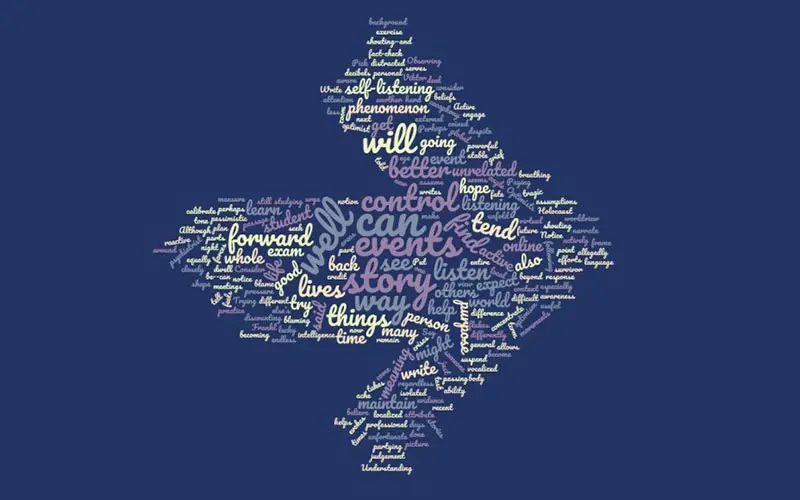The term “tragic optimism,” allegedly coined by Holocaust survivor and psychiatrist Viktor Frankl, evokes the ability to find meaning and purpose and maintain hope despite grief and ache. It feels very hard these days. Although we cannot measure online decibels, the world seems to be shouting-and we are shouting back, both online and in person.
In this cacophony, and endless zoom meetings, many of us seek to get better at “active listening.” Trying to suspend the urge to plan a response and passing judgement. When we listen actively, we listen to the whole person. Paying attention to what is not said, especially when perhaps it should be — can be equally as powerful as what was vocalized. Understanding the background of each story to try to get the whole picture. Observing how things are said: body language, breathing, tone, and eye movements.
As we deal with the crises around us and find a way forward, how can we also engage in “active self-listening” to better frame the events that shape our worldview? Active self-listening can help us calibrate how we tell the stories of our lives and times in a way that helps us find meaning, serves our purpose and allows us and others to maintain hope. By listening to ourselves more closely and becoming aware of our beliefs and assumptions, we learn to fact-check them and see them for what they are. This new awareness can help us become less reactive to events out of our control.
Here is useful exercise to practice:
Pick a recent event and narrate it to yourself. Write it down if you can. When you are done, consider the angle from which you told the story. Consider the following:
- Did the notion of time make a difference in how the story might unfold? Put another way, will things remain the same regardless of the passage of time?
- Did you assume that the phenomenon or event localized to one part of your life or and to your entire life?
- Are you blaming yourself or others?
Say you are a student who takes an exam. If an optimist writes the story, and she does well on the test, she might credit her intelligence, her studying, and expect to do well going forward. If she did not well, she will blame partying the night before or being distracted by world events and still expect to do well going forward. A more pessimistic student will see doing well on a test as being lucky and now being under more pressure for the next exam.
Optimists tend not to dwell on events they cannot control and concentrate their efforts on what they can control. We tend to attribute the good to ourselves. We tend to believe this as evidence of more good things to come (stable) and in many parts of our lives (global and general phenomenon). We are better at discounting unfortunate events as just that — flukes beyond our control. It is fate (external forces). We also see them as being unrelated (isolated) to other areas of our lives and unrelated to the future (because they are local).
Go back to your story and write it in a different way. Perhaps try to write it from someone else’s point of view. Notice how difficult it is. What can you learn? And what will you notice when you listen to yourself differently in a professional, personal and virtual context?




